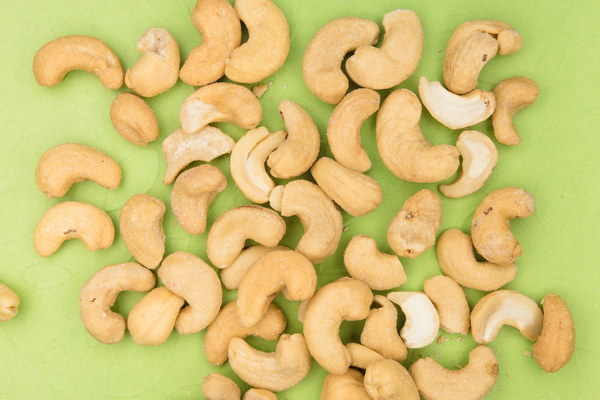Nourishing Your First Menstrual Cycle A Comprehensive Guide to Menstrual Regimen for Teenagers
Nourishing Your First Menstrual Cycle: A Comprehensive Guide to Menstrual Regimen for Teenagers
The onset of a girl's first menstrual cycle, known as menarche, is a significant milestone. It signifies the beginning of reproductive health and can bring about a variety of physical and emotional changes. As a teenager embarks on this journey, it's important to understand how to support her body through proper nutrition. This article provides a comprehensive guide to nourishing the body during the first menstrual cycle, focusing on a menstrual regimen that can help alleviate symptoms and promote overall well-being.
Understanding the Menstrual Cycle
Before diving into the details of a menstrual regimen, it's crucial to have a basic understanding of the menstrual cycle. The average menstrual cycle lasts about 28 days and is divided into several phases:
1. Follicular Phase: This is the first phase of the menstrual cycle, where the ovaries prepare to release an egg.
2. Ovulation: The egg is released from the ovary and travels through the fallopian tube to the uterus.
3. Luteal Phase: If the egg is not fertilized, the uterine lining thickens in preparation for a possible pregnancy.
4. Menstruation: If fertilization does not occur, the uterine lining sheds, resulting in the menstrual period.
The Importance of Nutrition During Menarche
During menarche, the body undergoes numerous physiological changes. Proper nutrition is essential to support these changes and help manage symptoms such as cramps, bloating, and mood swings. Here are some key nutritional strategies to consider:
1. Balanced Diet
A balanced diet rich in a variety of nutrients is the foundation of a healthy menstrual regimen. This includes:
- Protein: Essential for muscle repair and growth, protein can be found in lean meats, fish, eggs, dairy, legumes, and nuts.
- Fiber: Helps maintain bowel regularity and can be found in fruits, vegetables, whole grains, and legumes.

- Iron: Crucial for oxygen transport in the blood, iron can be obtained from red meat, poultry, fish, legumes, and fortified cereals.
- Calcium: Important for bone health and can be found in dairy products, leafy greens, and fortified foods.
- Magnesium: Helps regulate muscle and nerve function; sources include nuts, seeds, whole grains, and legumes.
- Vitamin D: Supports bone health and can be found in fatty fish, egg yolks, and fortified foods.
- Vitamin B6: May help reduce symptoms of premenstrual syndrome (PMS); sources include chickpeas, bananas, and potatoes.
2. Hydration
Staying hydrated is essential for overall health and can help alleviate symptoms such as bloating. Aim to drink at least 8 glasses of water a day, and consider herbal teas or infused water for variety.
3. Anti-Inflammatory Foods
Inflammation can exacerbate menstrual symptoms. Incorporate anti-inflammatory foods such as fatty fish, nuts, seeds, and fruits like blueberries and cherries into the diet.
4. Limiting Processed Foods and Caffeine
Processed foods and excessive caffeine can exacerbate symptoms like bloating and mood swings. Limiting these foods can help improve overall comfort during the menstrual cycle.
5. Regular Meals and Snacking
Eating regular meals and snacks can help maintain blood sugar levels and prevent energy crashes. Aim for small, balanced meals throughout the day, and choose healthy snacks like yogurt, nuts, or fruit.
6. Herbs and Supplements
Some herbs and supplements may help alleviate menstrual symptoms. Commonly used ones include:
- Chasteberry: May help regulate hormones.
- Vitamin E: May help reduce cramps.
- Magnesium: Can help alleviate muscle spasms.
- Ginger: May help reduce bloating and nausea.
It's important to consult with a healthcare provider before starting any new supplement to ensure it's safe and appropriate for your individual needs.
Conclusion
The first menstrual cycle is a time of significant change for a young woman. By following a menstrual regimen that focuses on balanced nutrition, hydration, and mindful eating habits, teenagers can support their bodies through this transition. While individual responses may vary, a well-rounded approach to nutrition can help alleviate symptoms, promote overall health, and set a strong foundation for future menstrual cycles.
Remember, every body is different, and it's important to listen to your own needs and consult with healthcare providers for personalized advice. With the right support and care, the journey through menarche can be a positive and empowering experience.









